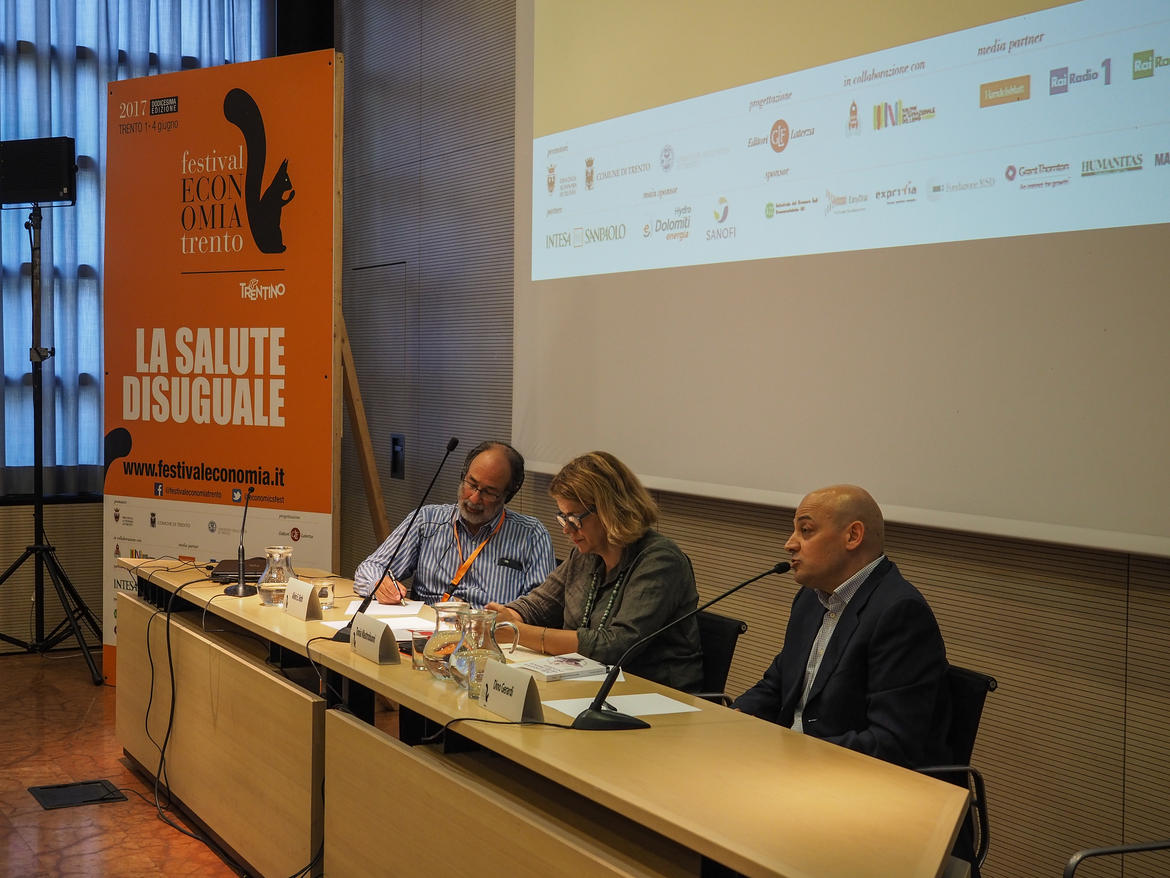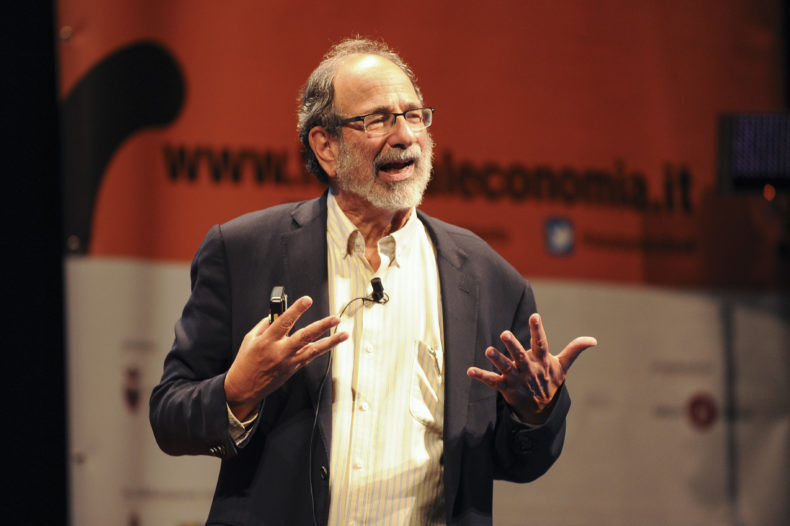Starting tomorrow, a short course in market design:
BIOS 203, Fall 2021: Market Design and Field Experiments for Health Policy and Medicine
Primary Instructor: Alex Chan chanalex@stanford.edu | Office Hours: By appointment
Secondary Instructor: Kurt Sweat kurtsw@stanford.edu | Office Hours: By appointment
Description. Market design is an emerging field in economics, engineering and computer science about how to organize systems to allocate scarce resources. In this course, we study (1) the theory and practice of market design in healthcare and medicine, and (2) methods to evaluate the impact of such designs. Students will be provided with the necessary tools to diagnose the problems in markets and allocation mechanisms that render them inefficient, and subsequently develop a working toolbox to remedy failed markets and finetune new market and policy designs.
With a practical orientation in mind, we will learn how to construct rules for allocating resources or to structure successful marketplaces through successive examples in healthcare and medicine: medical residency matching, kidney exchange, allocation of scarce medical resources like COVID vaccine and tests, medical equipment procurement, online marketplace for doctors, and, if time permits, reward system for biopharmaceutical innovation. Guest lectures by practicing market designers and C-suite healthcare executives (CEO, CFO) would feature in the course as well.
An important goal of the class is to introduce you to the critical ingredients to a successful design: a solid understanding of institutions, grasps of economic theory, and well-designed experiments and implementation. In the final sessions, students will also learn how to design and deploy one of the most powerful tools in practical market design: A/B testing or randomized field experiments. These techniques are widely used by tech companies like UBER, Amazon, eBay, and others to improve their marketplaces.
At the end of the course, students should have acquired the necessary knowledge to become an avid consumer and user, and potentially a producer, of the market design and field experimental literature (recognized by 4 recent Nobel Prizes in Economics: 2007/2012/2019/2020).
Time & Location.
● Tue, Thu 6:30 PM - 8:00 PM (beginning November 16, 2021) at Encina Commons Room 119
Course Webpage. ● https://canvas.stanford.edu/courses/145148
Schedule and Readings
(* required readings, others are optional)
Session 1. Market design and Marketplaces – November 16
1. * Roth, A. E. (2007). The art of designing markets. harvard business review, 85(10), 118.
2. Kominers, S. D., Teytelboym, A., & Crawford, V. P. (2017). An invitation to market design. Oxford Review of Economic Policy, 33(4), 541-571.
3. Roth, A. E. (2002). The economist as engineer: Game theory, experimentation, and computation as tools for design economics. Econometrica, 70(4), 1341-1378
Session 2. Matching Markets: Medical Residents and the NRMP – November 18
1. * Chapter 1 in Gura, E. Y., & Maschler, M. (2008). Insights into game theory: an alternative mathematical experience. Cambridge University Press.
2. * Fisher, C. E. (2009). Manipulation and the Match. JAMA, 302(12), 1266-1267.
3. * National Resident Matching Program. (2021). Feasibility of an Early Match NRMP Position Statement
4. Roth, A. E., & Peranson, E. (1997). The effects of the change in the NRMP matching algorithm. JAMA, 278(9), 729-732.
5. Gale, D., & Shapley, L. S. (1962). College admissions and the stability of marriage. The American Mathematical Monthly, 69(1), 9-15.
Session 3. Kidney Exchange and Organ Allocation – November 30
1. * Wallis, C. B., Samy, K. P., Roth, A. E., & Rees, M. A. (2011). Kidney paired donation. Nephrology Dialysis Transplantation, 26(7), 2091-2099.
2. * Chapter 3 in Roth, A. E. (2015). Who gets what—and why: The new economics of matchmaking and market design. Houghton Mifflin Harcourt.
3. Gentry, S. E., Montgomery, R. A., & Segev, D. L. (2011). Kidney paired donation: fundamentals, limitations, and expansions. American journal of kidney diseases, 57(1), 144-151.
4. Salman, S., Gurev, S., Arsalan, M., Dar, F., & Chan, A. Liver Exchange: A Pathway to Increase Access to Transplantation.
5. Sweat, K. R. Redesigning waitlists with manipulable priority: improving the heart transplant waitlist.
6. Agarwal, N., Ashlagi, I., Somaini, P., & Waldinger, D. (2018). Dynamic incentives in waitlist mechanisms. AEA Papers & Proceedings, 108, 341-347.
Session 4. 1 st Half: Repugnance as a Constraint on Markets – December 2
1. * Roth, A. E. (2007). Repugnance as a Constraint on Markets. Journal of Economic perspectives, 21(3), 37-58.
2. * Minerva, F., Savulescu, J., & Singer, P. (2019). The ethics of the Global Kidney Exchange programme. The Lancet, 394(10210), 1775-1778.
3. Chapter 11 in Roth, A. E. (2015). Who gets what—and why: The new economics of matchmaking and market design. Houghton Mifflin Harcourt.
2 nd Half: Market Design and Allocation during COVID-19 – December 2
1. * Emanuel, E. J., Persad, G., Upshur, R., Thome, B., Parker, M., Glickman, A., ... & Phillips, J. P. (2020). New England Journal of Medicine. Fair allocation of scarce medical resources in the time of Covid-19.
2. Piscitello, G. M., Kapania, E. M., Miller, W. D., Rojas, J. C., Siegler, M., & Parker, W. F. (2020). Variation in ventilator allocation guidelines by US state during the coronavirus disease 2019 pandemic: a systematic review. JAMA network open, 3(6), e201
3. Schmidt, H., Pathak, P., Sönmez, T., & Ünver, M. U. (2020). Covid-19: how to prioritize worse-off populations in allocating safe and effective vaccines. British Medical Journal, 371.
4. Schmidt, H., Pathak, P. A., Williams, M. A., Sonmez, T., Ünver, M. U., & Gostin, L. O. (2020). Rationing safe and effective COVID-19 vaccines: allocating to states proportionate to population may undermine commitments to mitigating health disparities. Ava
5. Neimark, J. (2020). What is the best strategy to deploy a COVID-19 vaccine. Smithsonian Magazine.
Session 5. 1 st Half: Auction Design and Procurement in Medicine – December 7
1. * The Committee for the Prize in Economic Sciences in Memory of Alfred Nobel. (2020). Improvements to auction theory and inventions of new auction formats. Scientific Background on the Sveriges Riksbank Prize in Economic Sciences in Memory of Alfred Nobel 20
2. * Song, Z., Cutler, D. M., & Chernew, M. E. (2012). Potential consequences of reforming Medicare into a competitive bidding system. Jama, 308(5), 459-460.
3. Newman, D., Barrette, E., & McGraves-Lloyd, K. (2017). Medicare competitive bidding program realized price savings for durable medical equipment purchases. Health Affairs, 36(8), 1367-1375.
4. Cramton, P., Ellermeyer, S., & Katzman, B. (2015). Designed to fail: The Medicare auction for durable medical equipment. Economic Inquiry, 53(1), 469-485.
5. Ji, Y. (2019). The Impact of Competitive Bidding in Health Care: The Case of Medicare Durable Medical Equipment.
6. Thaler, R. H. (1988). Anomalies: The winner's curse. Journal of economic perspectives, 2(1), 191-202.
7. Chapter 2 in Haeringer, G. (2018). Market design: auctions and matching. MIT Press.
2 nd Half: (GUEST LECTURE) Ralph Weber, CEO, MediBid Inc. on “The Online Marketplace for Medicine” – December 7
Session 6. A/B Testing and Field Experiments to Test Designs – December 9
1. * Chapters 1, 4 in List, John. (2021). A Course in Experimental Economics (unpublished textbook, access on course website)
2. * Gallo, A. (2017). A refresher on A/B testing. Harvard Business Review, 2-6.
3. Chan, A. (2021). Customer Discrimination and Quality Signals – A Field Experiment with Healthcare Shoppers.
4. Kessler, J. B., Low, C., & Sullivan, C. D. (2019). Incentivized resume rating: Eliciting employer preferences without deception. American Economic Review, 109(11), 3713-44.
5. Chapters 3, 5, 6, 7, 8 in List, John. (2021). A Course in Experimental Economics (unpublished textbook, access on course website)
6. The Committee for the Prize in Economic Sciences in Memory of Alfred Nobel. (2019). Understanding development and poverty alleviation. Scientific Background on the Sveriges Riksbank Prize in Economic Sciences in Memory of Alfred Nobel 2019.
Bonus Session (optional). (GUEST LECTURE) Donald Lung, CFO, Antengene on “Designing Markets to Access Biopharmaceutical Intellectual Property Across Regulatory Regimes – the Case of China” – Date TBD
Bonus Session (optional). (GUEST LECTURE) TBD – Date TBD







